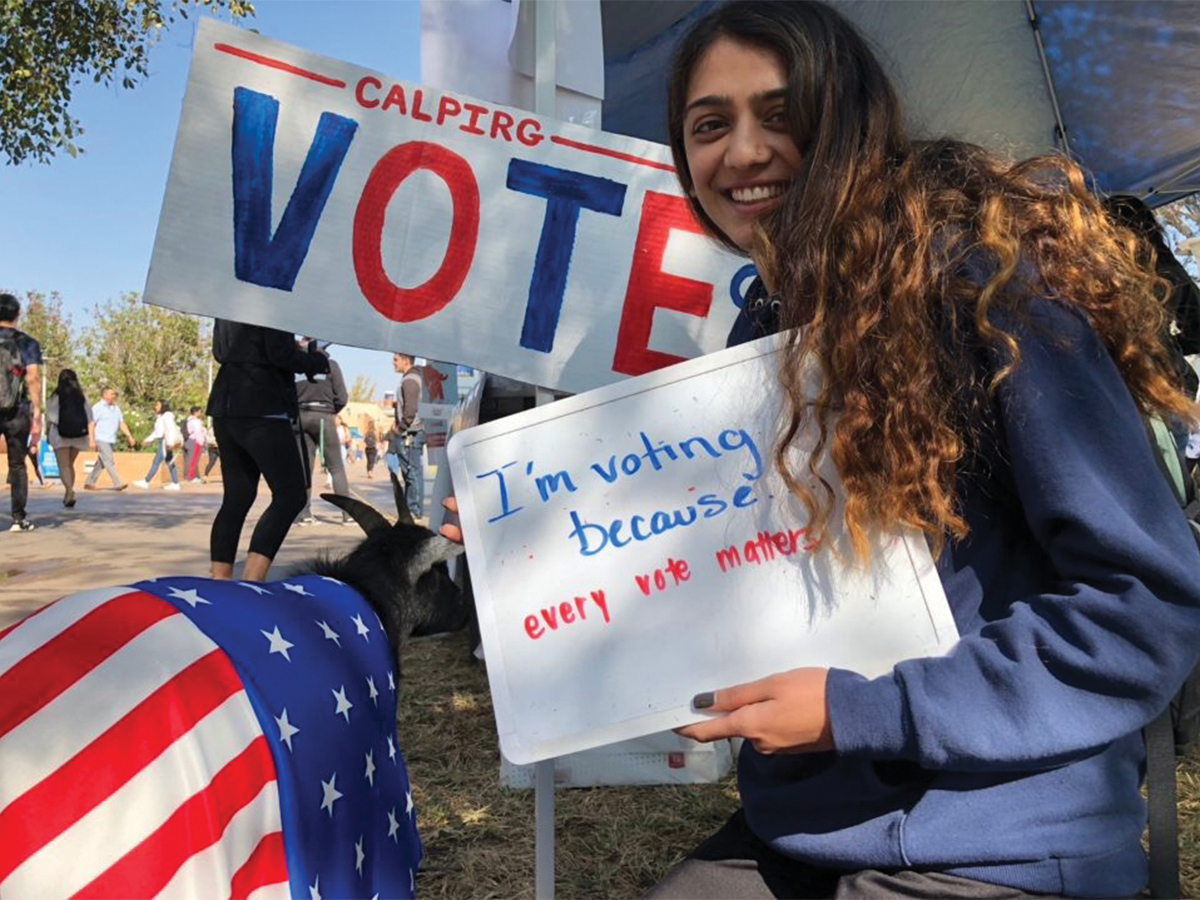ASUCR’s Civic Engagement Coalition hosted its first free information session on Tuesday, Oct. 20. Titled “Our Power, Our Vote,” the webinar aimed to educate students about voting rights, especially as it pertains to the upcoming election.
The webinar was led by two of the coalition’s programming coordinators, fourth-year public policy major, Alicia Larson, and Zobia Qazi, a third-year neuroscience major. Qazi began by giving a brief overview of voting rights throughout history, from the passing of the Fifteenth Amendment in the 1800s to census redirections in the 2000s.
 From there, they segued into a discussion about voting rights for those who are or were incarcerated, those who face language barriers as well as those with disabilities. They first prefaced this by advising anyone within this category to look into the Election Protection Coalition online, a nonpartisan group that provides plenty of extra resources regarding election voting.
From there, they segued into a discussion about voting rights for those who are or were incarcerated, those who face language barriers as well as those with disabilities. They first prefaced this by advising anyone within this category to look into the Election Protection Coalition online, a nonpartisan group that provides plenty of extra resources regarding election voting.
Qazi went on to talk more about rights for formerly incarcerated people. She noted that voting rights for individuals with parole or on probation are lost until the completion of the sentence with automatic restoration afterward, provided that the person registers to vote once more. Qazi added that California has been a little more lenient with voting rights for the incarcerated; those in county jails may retain the right to vote while serving time, but it does not apply to those in state or federal prisons. The state also requires that knowledge of voting right restoration be provided on the internet and to felons leaving prison.
The discussion then turned to people with disabilities and those who face language barriers. Qazi urged the former group to tap into resources, such as the Organization of Disability Rights California, and to check out a government provided resource geared towards those who use American Sign Language and made to explain the current propositions. For those who might have trouble with the English language, Qazi recommended checking out the Advancing Justice website for information in a variety of languages. She also stated, “You always should ask staff at your polling place what materials they may have in your language, or the language you prefer. And always ask if any staff at the polling place speak your language.” For individuals who vote by mail, she affirmed that it would be best practice to call their elections office and ask about free translated materials.
The webinar also featured an informative section on voter discrimination. Qazi quoted the Brennan Center for Justice, and stated, “Even in the 2020 election, while the risk of COVID-19 will no doubt move more voters to cast their ballots by mail, some communities, more typically communities of color, rely on these polling places.” Historically, communities with a higher population of Black and Latino people are shown to have higher waiting times at polling sites on election day. The landmark case of Shelby vs. Holder in June 2013 overturned an important provision of the Voting Rights Act; subsequently, voter suppression increased, especially in communities of the elderly, the poor and BIPOC.
From there, Larson took over and pointed out important dates for the upcoming election. Oct. 19 was the last day to register online, while Oct. 24 was “Vote Early Day,” marking the middle of California’s early voting period. Election day is approaching on Nov. 3, and Larson mentioned that anyone can find their local polling place through the Secretary of State website.
Though online and regular in-person registration has passed, for those who may have missed the deadline, the state of California offers conditional voter registration. This secondary deadline is a “safety net” for California residents that still need to register or update their personal information. They would just need to find their local polling place and register at the same time they fill out their ballot. Larson added that proper identification is needed in order to do this, such as a driver’s license, passport, credit or debit card.
Larson made it a point to talk about common mistakes to avoid when filling out the actual ballot. In order for a vote to be counted, the voter must use a blue or black pen, use the same personal signature that the government has on file, write out the complete date and completely fill in all required marks. She also recommended voting early if possible, as it helps gauge voter turnout and ensures all ballots get counted while also allowing voters to avoid long polling lines and beat voter suppression.
Both Qazi and Larson stressed the importance of this election in particular, as it will be the first time in which the polls will be dominated by people under 40 years of age. “Register to vote if you haven’t already,” they concluded, “And encourage friends and family to vote as well.”
For more updates and information about the UCR Civic Engagement Coalition, their social media presence can be found @ucr_cecoalition.







